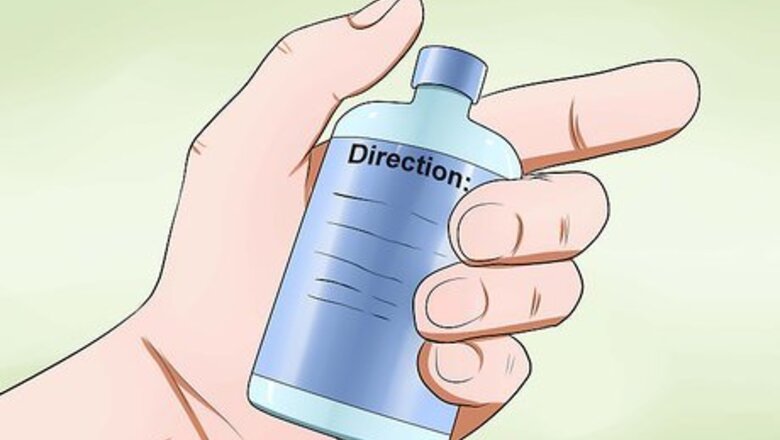
views
Making Your First Attempt
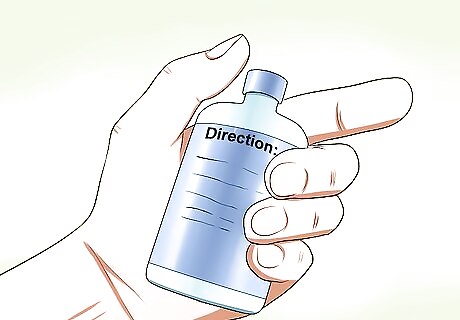
Read medication directions carefully. If you're syringe feeding a rat medication, make sure you read the directions on the medications carefully. You want to make sure you get the dosage correct. Medications may also come with other special instructions. For example, some medication may need to be administered at room temperature. Call your vet if you're unsure about any directions. You do not want to accidentally hurt your rat when attempting to medicate him.
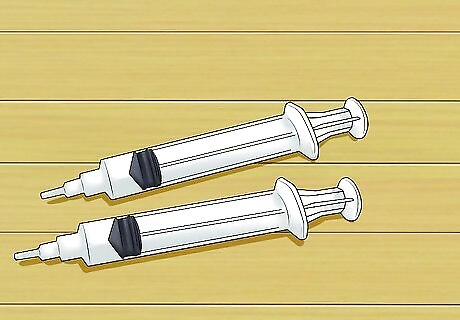
Prepare the syringe. You should prepare the syringe before disturbing your rat. If you have your rat out, it may be hard to get the syringe ready. Rats may feel nervous when being syringe fed or medicated and you will not be able to tamper with your syringe while keeping your rat calm. If you don't have a syringe, you can purchase one at your vet's office. You may also be able to get a syringe at a drugstore or supermarket if your vet's office is closed. If your rat is dehydrated, you can syringe feed him water, soy milk, or a rehydration product supplied by your vet. If you're using anything medical, use the instructions on the bottle. If you're using water or soy milk, use a small amount at first. See how much your rat drinks. If he seems to want more, you can refill the syringe. When using medicine, always feed your rat the amount instructed on the bottle or follow your vet's instructions. Rinse out the syringe with warm water a few times to make sure it's clean. Then, place the tip of the syringe in the liquid you're using. Pull the plunger upward until the syringe is at the proper level. Syringes have labels on the side that allow you to measure how much is in the syringe, usually in milliliters.
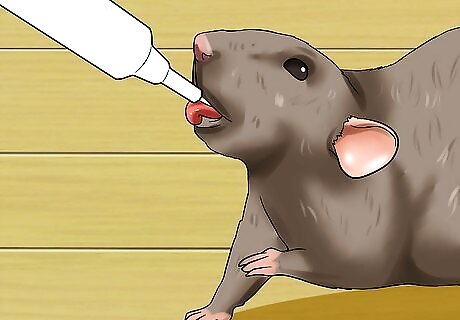
Try to get the rat to take the medicine willingly. Rats may take medication, foods, or liquids administered by syringe willingly. Medications are often flavored and rats may actually enjoy the taste. You can simply allow your rat to lick the tip while slowly pressing down on the plunger. If your rat is willing to take the medication without being forced, this is the least stressful and most effective means to syringe feed him.
Place the syringe in the rat's diastema for the easiest point of entry. The diastema is the gap between the rat's incisors and the back of the mouth. Slipping the syringe into this small opening means your rat doesn't have to open its mouth, making syringe feeding much easier. You can also use this method if you need to force-feed your rat.
Feeding Your Rat by Force

Prepare the rat for syringe feeding. Not all rats will willingly be fed by syringe. If your rat does not take his medication on his own, you will have to force feed him. First, get your rat ready. If your rat is very big or rambunctious, you may need to gently wrap him in a cloth or towel. You wrap your rat sort of like a burrito, pulling the cloth or rag around him firmly enough that he cannot move easily. However, as rats are small this may not be necessary. You can simply hold your rat with one hand. Pick him up with your non-dominant hand and place your thumb and forefinger around his chest, keeping these fingers under his front legs. Some people find placing their rat on their lap or chest works well. If your rat is social and enjoys climbing on you, this may help keep him calm.
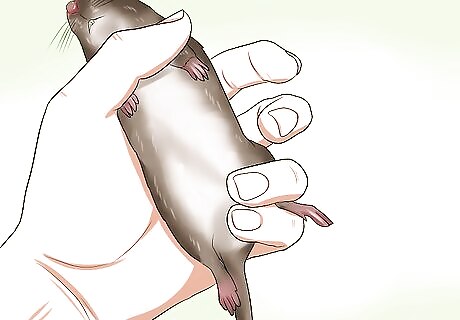
Turn your rat towards you. Once you've restrained your rat, move his right leg between your ring and pinky finger. This will prevent him from pushing the syringe away. Then, gently turn his head towards you. Position his mouth at an angle from which you can easily administer the syringe.
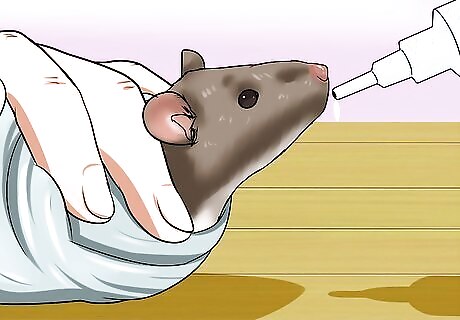
Place the syringe in your rat's mouth. Once your rat is restrained and turned towards you, place the syringe in his mouth. Bend it at a roughly 45 degree angle. Bending the syringe too sharp could cause your rat to gag.
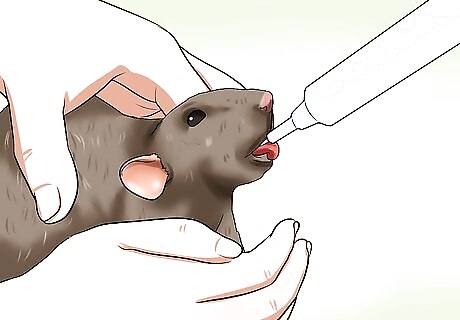
Feed your rat. Slowly release the food, medication, or liquid into the rat's mouth. Go in increments, pausing on occasion to allow your rat to swallow. Go slowly, giving him enough time to swallow all the liquid. If your rat tries to spit up the liquid, you may have to gently close his mouth to prevent this. If your rat becomes very distressed, take a break. Allow him to calm down before administering more medication, food, or water. You do not want to create too much stress as this can make your rat sicker.
Avoiding Pitfalls
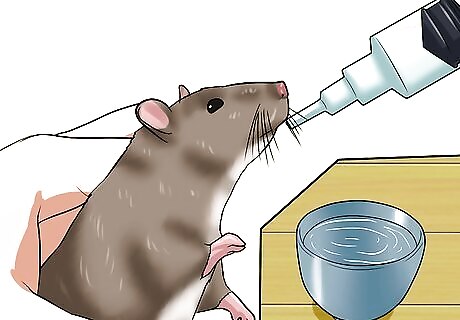
Follow up with water when giving medication. If you're administering medication via syringe, follow up with 0.5 to 1 milliliter (0.017 to 0.034 fl oz) of water. This will help your rat's body digest his medication quicker. Your rat may also be slightly dehydrated if he was struggling or upset when being syringe fed.
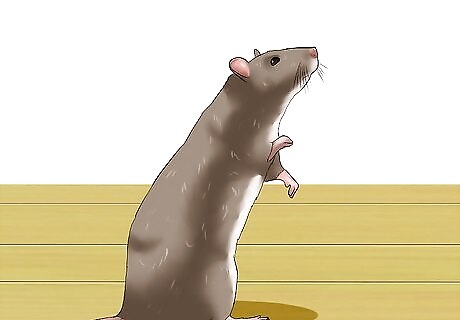
Make sure the rat is upright. Never syringe feed a rat while he's lying on his back. This could lead to choking. Always make sure your rat is upright before administering medication, food, or water via a syringe.
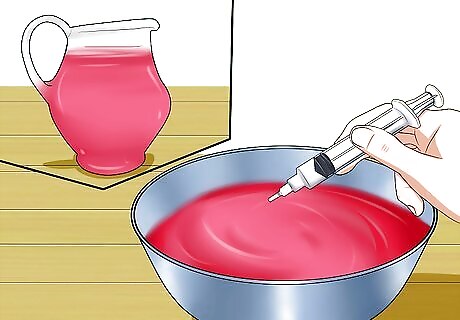
Try mixing medication with tastier liquids. If your rat is particularly resistant to being syringe fed, consider mixing his medication with pleasant tasting liquids. Soy formula, Kool-Aid, or Sprite may taste better to a rat than his meds. However, make sure you check with your vet before mixing anything into your rat's medication. You want to make sure additives won't affect the medication.




















Comments
0 comment